Taking shape over twenty years ago, Sweden’s Deathstars return in 2023 in a big way. A band with a unique background, the core of Deathstars key creators is within the Black Metal, Death Metal, and Doom Metal world. So, it would make sense that Deathstars somehow sprinkle all these elements in their music.
A mix between dark gothic undertones, heavy guitars, married with danceable beats, Deathstars have distinguished themselves among others on the scene, and even after a nine-year absence of new music, reclaim the crown with their brand-new album Everything Destroys You. Released back in May, the album marks their first since 2014’s The Perfect Cult and comes not a second too soon for eager fans. Reinvigorated and ready to go, co-founding member Nightmare Industries recently sat down for a discussion about Deathstars history, his story as a musician, the work behind Everything Destroys You, plus more.
Cryptic Rock – You have been involved in music for over three decades. From your early work Ophthalamia to Swordmaster to Deathstars, you have travelled an interesting road. Tell us, how would you describe your journey in music to this point?
Nightmare Industries – Well, my first instrument was piano/keyboards that I started learning when I was ten. When I was eleven years old, I started playing bass in a heavy metal band with my brother and from there I have always been in different bands playing different kinds of metal. I started focusing on guitar playing and I moved to Gothenburg when I was sixteen and I formed Swordmaster with Whiplasher around that time. We got signed to Full Moon Productions and later to Osmose Productions. I joined Ophthalamia playing bass when I was around eighteen.
When I was around twenty-one to twenty-two, I went to the Musicians Institute in Hollywood, CA. When I was about twenty-five (around 2001) we got signed to Universal Music here in Stockholm, so I moved up to Stockholm where I am still living today. We signed Deathstars to Nuclear Blast around 2003 and have been with them since then. I also had a few years in NYC which was very interesting, but I’m back in Stockholm again. For the last twenty years Deathstars has been my main focus and we were busy touring and entering the studio from 2001 to 2015, supporting many bigger bands like Korn and Rammstein on tour. Then we felt like we needed a break.
So, we took some time off but we slowly started writing music again in like 2018 and forward… so this is a short version of how I musically ended up here.
Cryptic Rock – It sounds like it has been a very interesting ride with a lot of twists and turns. As mentioned, you have a long history in Metal. You have created within the realm of various areas of Metal ranging from Black Metal to Doom Metal and Industrial Metal. Would you say all these experiences in different sub-genres unite together in what you are doing today?
Nightmare Industries – I’ve never thought about it like that, but yes to some extent it does. I mean, all past experiences and styles I’ve written music indefinitely has some influence on how I write music today and even though it might not be obvious to the listener, it influences the way I produce and create, the way I choose what to include and what to exclude in the Deathstars sound. If something is too much Black Metal, I might exclude that part, or if something is too much doom… for example. But every now and then I keep little hints to other genres here and there to try to push the boundaries of what we do with Deathstars. It’s always fun to try to break your own limitations and try new stuff.
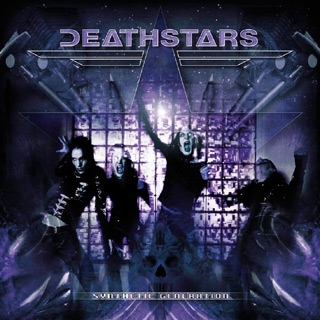
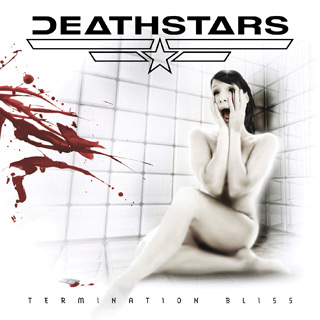
Cryptic Rock – Right, and it is great that you have such a wealth of experience and such a diverse background. Deathstars have been going strong for over two decades now. Creating a unique form of Industrial Metal with Gothic textures, when first forming Deathstars, what was the creative intent?
Nightmare Industries – Most of all I felt that I had grown as a songwriter and wanted to incorporate all elements of my music writing into one output. I had been writing a lot on keyboards in the past and I didn’t have an outlet for a lot of my music writing. In my past bands I had only been able to use whatever I wrote on guitar and I wanted to be able to use both what I wrote on guitar and keyboards into one. It was more fun and creative to write that way.
We also wanted to start using more clean vocals with melodies here and there which took a little while to get used to for Whiplasher. We were trying out different techniques in the studio and for a while we thought that he wasn’t going to be able to do it. But at the very last minute he got it right and his vocals are so deep that it fits the music well. All this was just an experiment basically and it turned out to work well.
Cryptic Rock – It is interesting to hear how it all came together for the band. Deathstars has remained consistently active over the years, however, there was nearly a decade gap between 2014’s The Perfect Cult and the recently released Everything Destroys You. Were there various setbacks and challenges the band faced over the last decade?
Nightmare Industries – The touring cycle of The Perfect Cult album saw many setbacks, our bus caught fire and burned up on the highway in the middle of the alps in Austria, we had a festival in Australia that went bankrupt and didn’t pay us, and a tour in the US that was twice as expensive as estimated by our management. So basically, we toured the world and came back and felt that we needed a break for a while. Also, I went through a divorce and moved from New York back to Stockholm during this period.
We never really discussed taking a break, but the creativity was just not there at that point in time, so we didn’t write any music for a few years. And when we finally started to get serious about writing music again, the pandemic hit and everything changed. Tours got moved forward and canceled. It has been a weird time for sure. (Laughs)
Cryptic Rock – Wow, what a crazy time, but thankfully the music survived it all. That in mind, the wait is over, and Everything Destroys You is finally here. This album is a great return for Deathstars with many killer tracks. You also welcomed Eric (Cat Casino) back to the band on guitar for this album. What was the writing and recording process like this time around?
Nightmare Industries – Usually when we write music it is very focused on me and Whiplasher working together. I send him my song ideas and he worked out some lyrics and vocals for it, then I produce his vocal ideas and he does some re-writes here and there based on what I told him. During the production of this album, I had my own studio setup here in Stockholm so we worked more in person than before. He came to the studio and we worked together all night until 5 AM. I made changes to his vocals and he even made me make changes in the music here and there. So, this album was worked out together a lot more than in the past.
After all the groundwork was done and most of the vocals were recorded, we recorded everything else properly. To the very last point we used my demo-guitars and bass… Cat came to lay down some guitars, I recorded mine and Skinny wanted to set up his bass sound and record it on his own studio setup. Then we re-amped everything together with Thomas “Plec” Johansson in the Nordic Sound Lab. Then I edited everything and sent it to Jay Ruston for mix and master.
Cryptic Rock – It sounds like the process was a well-oiled machine! As with past work, there are many anthemic tracks on Everything Destroys You. How important is it to the band to craft songs that are so seductively dark and danceable?
Nightmare Industries – I think that it just happens to be that way we built up our sound through the years. When we write we stay open and keep a lot of ideas that are kind of pushing the boundaries and then when we filter it and throw away a lot of things that are too happy or positive sounding. I think that’s just what we like, that dark sound, but still with a hint of catchiness, u and like you say, a danceability to it.
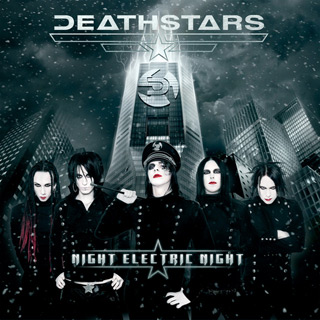
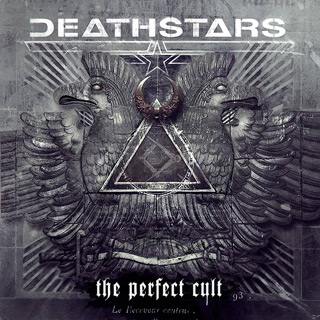
Cryptic Rock – Right, and it all works well for a unique sound. As someone who has been entrenched in the Metal scene for so long, you have seen a lot of changes. There are so many sub-genres at this point and an abundance of content thanks to the advent of independent music production combined with the access of the internet.
Of course, this is great in one respect, because the possibilities are endless for an artist to find success. On the other hand, like many other aspects of society, it has led to sensory overload with so much content to sift through; you can often feel overwhelmed by the endless content, plus sincerity and quality of what is out there. A lot to think about, what are your thoughts on all this and the state of music in general in modern culture?
Nightmare Industries – When I started in the music scene, we had to do research in the underground scene and we were still sending cassette tapes and flyers to each other, never knowing what to expect coming back to you. The Black Metal scene was booming and most bands that were any good got record deals and made records. It was a great time for sure, but I have always embraced technology. Even though musicians have been complaining about streaming services etc., I have always tried to see the positive side with it.
These days you can surf around and find music that you like quickly and I think that side of it is great. There is however a lot of music out there and that’s why I think record labels still play an important role. If You get signed you have a better chance at being noticed in the music scene today. At the moment there are a lot of releases though since there were a lot of bands that were at home writing during the pandemic. And there’s a lot of tours happening right now too… There’s a lot going on for sure. But like I said, I try to see the positive side of it. It’s great that the music scene is alive!
Cryptic Rock – Yes, and you have to take the good with the bad with anything. Deathstars have some extensive touring going on this fall into the winter. Hitting Mexico, as well as the European region, how excited are you for these shows, and can we expect some North American dates in the future?
Nightmare Industries – We are very excited of course, it’s always great to go on tour and meet people who like your music. We are also doing some shows in Brazil, Argentina, Chile and Colombia which will be great. We are trying to get to North America, but it’s always a bit difficult for us to get there. We do have a fanbase in North America, but it’s not as big as elsewhere and North America is a very big continent. So, we are trying our best to make it happen! We would love to come back.
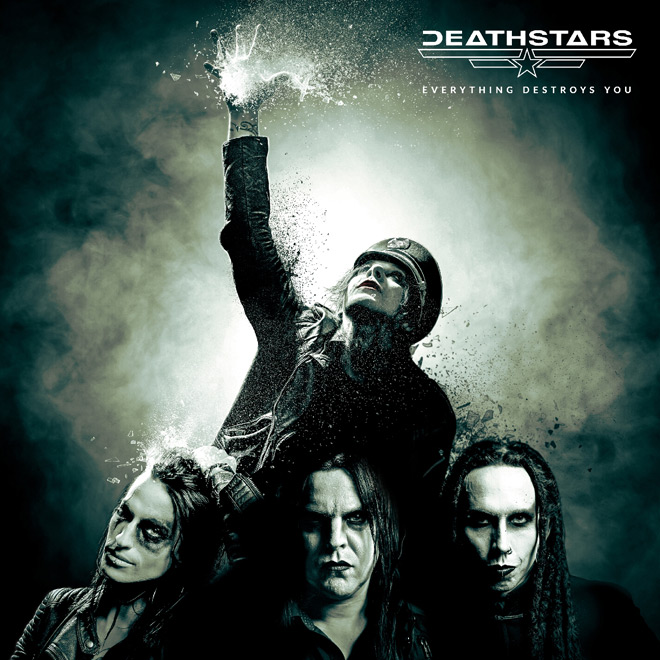
Cryptic Rock – Hopefully you can make it to North America soon, and it sounds like the other touring is going well. As alluded to earlier, you have an interesting history in music. You also spent time performing live with Dissection early on, and worked in production for the final Dissection album in ’06. What was that time like for you working with your brother?
Nightmare Industries – It was great to work with my brother, I always respected him for his musical skills, even though we were quite different when it came to ideologies and stuff. Musically it was a very creative time. We were working in the studio for about a year and we did the Termination Bliss (2006) album with Deathstars during the same time, so I was jumping between productions which was very interesting… two different styles at the same time. Like I said, a very creative period.
Cryptic Rock – It sounds like it was a great time and one which helped you grow as a musician as well. Last Question. If you are a fan of Horror movies, what are some of your favorites?
Nightmare Industries – I love Horror movies, but I am not really an expert in the field. I used to watch Horror movies to fall asleep back in the day. I have some sleeping problems during periods, but Horror movies always make me relax. (Laughs) I have to say Hellraiser (1987) and Hellbound: Hellraiser II (1988) are my favorites when it comes to Horror movies, but there are so many others though. I watched a pretty good one recently called Terrifier (2016).

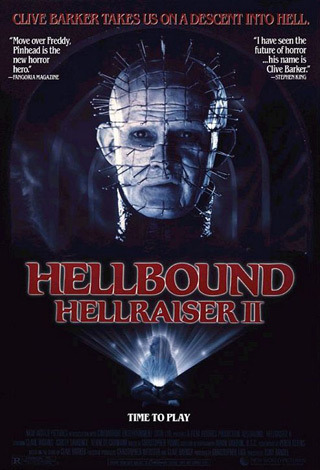


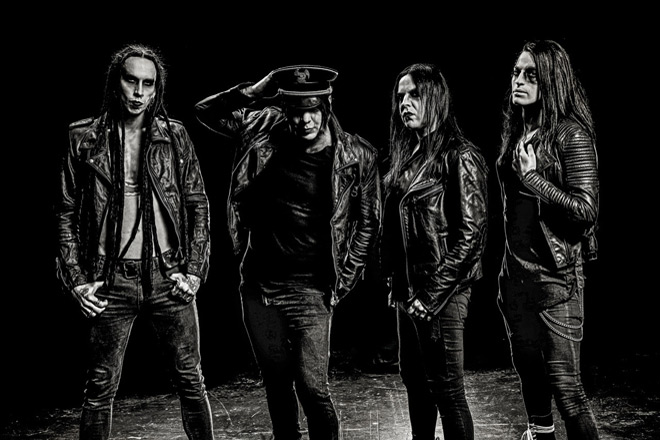




No comment